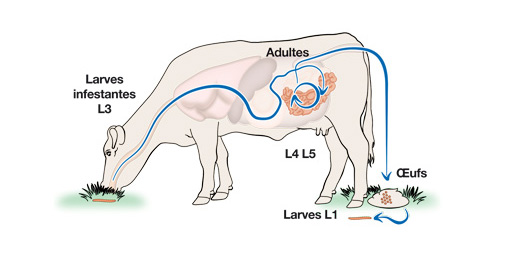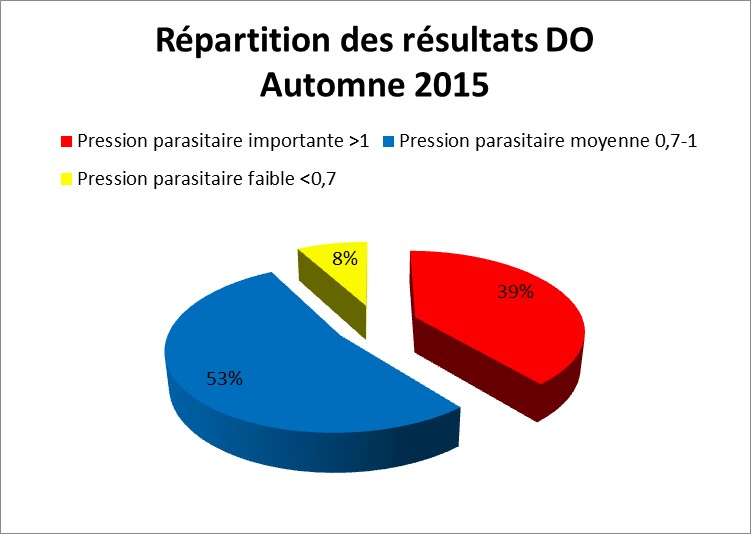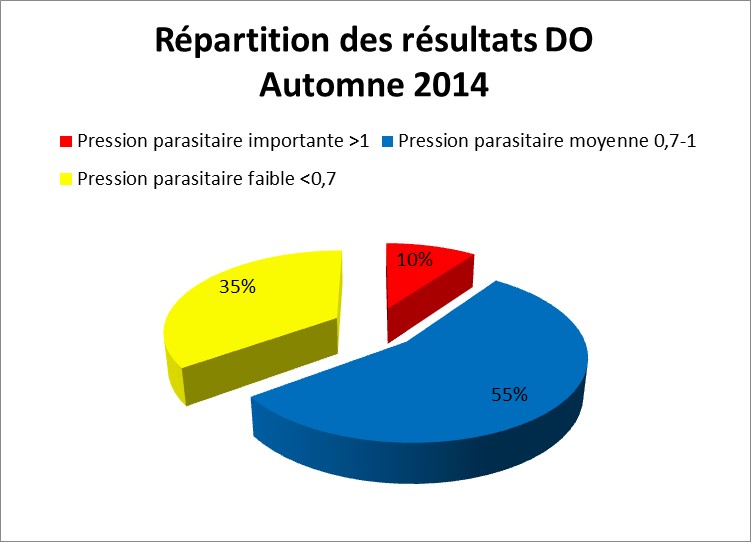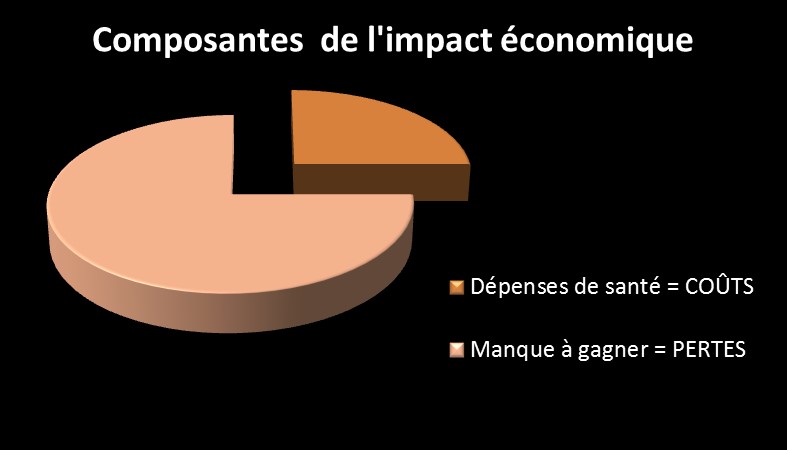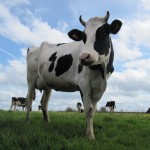
Parasitism and the profitability of my breeding.
Parasitism parasites worming cattle cow profitability performance center Brittany rostrenen veterinarian
The gastrointestinal parasitism in cattle, must during grazing, must be controlled to limit its impact on the profitability of livestock farming.
During this fall, we conducted an action of collection of milk samples in 93 farms in order to provide our farmers information on the parasitism of their herds. The results are divided as follows :
For comparison, Here is the breakdown of the results of the samples collected in the fall 2014 :
The interpretation of this result is to modulate :
- The level of milk production
- The proportion of grazed grass in the diet
- The effective contact time with worms (number of months of grazing)
- Grazing management (loading, rotations, Crusader pasture with heifers)
This study reveals that, in 2015, 90 % farms have suffered a parasitic pressure which may impact performance (against 66% in 2014).
These poor results are directly correlated to the climate and the weather, but other risk factors involved (Loading plots, rotations and driving grazing, unsuitable deworming schedules, Crossed pastures ...).
Declining performance impact your economic results with several levels to :
- Losses = shortfall : slower growth of young, increasing the age at 1ER calving, milk production drop, animals sick with diarrhea, Neonatal diarrhea related to the degradation of quality colostrum, possible deaths ...
- Cost = health expenditure : purchases deworming, care of sick animals
The chart reminds the components of the economic impact of parasitism in most farms : losses relating to this position are often higher than the costs incurred.
The team from the veterinary clinic Kreiz Breizh is engaged in a preventive approach and offers services tailored to the farmer wishing to improve productivity and profitability.
Speakers at a farm, Our priority is to reduce the shortfall.
Indeed, Animal Health, reducing losses is much greater leverage cost reduction.
As of parasitism, the aim of the breeder should be to maintain the balance between the animals and their parasites at a reasonable cost. The following recommendations are fundamental :
- The installation of immunity in young people should be encouraged
- The contamination of pastures and animals should be limited
- Optimizing worming treatments "expensive" is essential
For information, vermifuger a herd of 70 dairy cows with a product For You (= To be used on the back) from 5 liters costs 540 € EXCL. VAT (in our structure).
The question that the breeder wanting to be profitable should ask is: The treatment I administered it is used wisely?
Indeed treat the flock without knowing its parasitic status can be risky:
some herds do not require pest control, then it is unnecessary to spend that amount.
Conversely invest in a good treatment for an excessively noisy flock is clearly a profitable act.
Hence the importance of taking stock of the parasitic status of their livestock.
To view our services' management of parasitism ", Click here.

